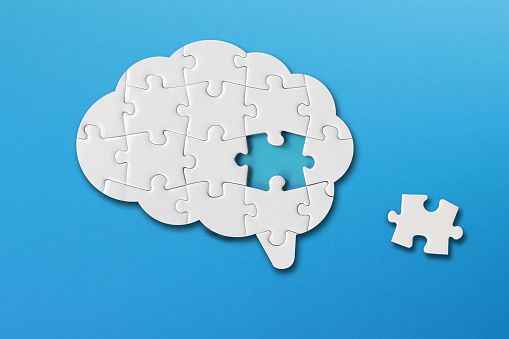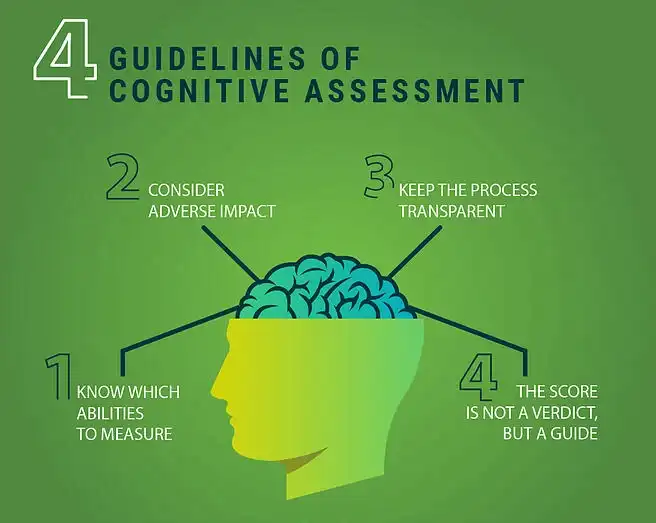Memory Loss Test: How Can I Test Myself for Memory Loss?
Memory Loss Test
Do you worry that you may be experiencing memory loss? Are you not sure how to test yourself for memory loss? If so, don't worry – you are not alone. Many people are unsure of how to determine if they have memory loss or not. In this blog post, we will discuss different methods for testing your memory and helping you to determine if you need to see a doctor WITH A FAMILY MEMBER about your concerns. If you have a memory problem and the Doctor asks you if everything is ok, you might forget to report the problem so bring family members.

How do I know if I have memory loss?
One of the best ways to determine if you have memory loss is to take a memory screening test like MemTrax. There are many different cognitive tests available, and most of them are outdated and very boring to endure. Taking something fun means you might come back for a repeat assessment which has incredible benefits for early detection! This can be a good way to get an idea of how your memory is functioning currently. If you score poorly on the test, it may be a sign that you should consult with a doctor about your concerns of memory problems for further diagnostic tests.
How can I test my memory?
To get an accurate measure of your memory loss to possibly detect mild cognitive impairment, clear the room of any distractions, find a nice quite place. Start the memory test and use your focus to test your cognitive function as it aims to detect early signs of memory impairment. Diagnosing dementia can be difficult and you may need further clinical tests to determine if you are in the early stages of further along in the progression of dementia symptoms. Alzheimer's and other dementias have been rampaging our communities and the cost to our society is dire. Healthy living and using your thinking skills / motor skills seem to be the new treatment for Brain Health and early dementia intervention.

We are developing more tests by talking with a global network of research doctors that have a keen interest in solving this global problem. Online memory tests eliminate the need for a normal physical examination to detect a memory or thinking problems. Outdated tests remain prominent with researchers as their validity is set with science such as: The Mini Mental State Exam, Sage Test from Ohio State, and Cogstate card shuffle. Boring and painful tests that encourage avoidance is wrong and there can be challenging and fun methods for discovering memory problems, improving cognitive neurology, advancing cognitive health, and providing meaningful further evaluation that may lead to a more accurate Alzheimer's disease diagnosis.
Tell me the importance of short term memory?
Using a short memory test can provide an important basis for everyday life. This will help you find your keys in your car. Short-term memory is a temporary storage place where information is stored. Hence the difficulty in this kind of memory can be frustrating and potentially debilitating. Because the memory has a limited capacity for short periods, problems may occur. So that is the reason for its many glitches.
Symptoms of Short-Term Memory Loss
Short-term memory loss occurs when one forgets something they thought about and has recently learned. The most commonly experienced symptoms are:
- forgetting where you placed your car keys or sunglasses
- forgetting what you were doing before you were interrupted
- difficulty remembering the names of new people you meet
- having to ask for directions frequently
- feeling overwhelmed by simple tasks
- needing to write things down more often than before
How is short term memory tested? There are a few ways that healthcare providers can test an individual's short term memory. Common method require pen and paper and are very outdated and mundane. For example the digit span test measures how many numbers someone can remember after hearing them just once. The average adult can usually recall about seven digits. If an individual recalls fewer than five digits, this may be an indication of poor short term memory. Another way to test short term memory is by asking an individual to remember a list of words and then repeat the words back to the tester. The number of words that an individual can remember is an indication of how well their short term memory is functioning.
What is long term memory?
Long-term memory is our brain's system for storing, managing, and retrieving information. It is what allows us to remember things from our childhood, the name of our first pet, and the lyrics to our favorite song. Long-term memory can be divided into two categories: explicit and implicit. Explicit memories are memories that we are aware of and can recall intentionally. Implicit memories are memories that we are not consciously aware of, but that still affect our behavior. For example, a person may have implicit memories of how to ride a bike or swim because they have done it so many times.
When you should seek help for memory loss
Various types of dementia may also affect the memory of older adults. The best way to diagnose your health issues promptly is to get the proper care. Everyone can sometimes forget something. Maybe someone forgot their keys in the car? Some memory difficulties, as well as a slight decline in other mental abilities, are quite common in aging. It's likewise true that Alzheimer's disease has a major effect on people's memory and cognitive functioning and can cause severe memory loss. Memory problems are caused by underlying conditions.
Medical Tests to Identify Mild Cognitive Impairment
The Alzheimer's disease test does not test for a specific type of disease. Physicians often employ different methods to help with a diagnosis. However, doctors are often unsure whether a person has dementia and it is difficult to determine exactly why. During an examination the doctor will look at the patient's medical history.
Blood tests for Alzheimer's disease
A blood test for Alzheimer's disease is a diagnostic tool used to identify the presence of the condition. The test measures the level of beta-amyloid in the blood. This protein is known to accumulate in the brains of people with Alzheimer's disease. A high level of beta-amyloid in the blood is a strong indication that a person has Alzheimer's disease.
Brain Scans for Memory Loss
A CT - computed tomography scan uses a series of x-rays to create a 3-D image of the brain. This type of scan can help doctors to identify the presence of Alzheimer's disease by looking for changes in the brain that are associated with the condition.
An MRI scan uses a strong magnetic field and radio waves to create images of the brain. This type of scan is more detailed than a CT scan and can help doctors to distinguish between different types of dementia.
A PET scan is a type of brain scan that uses radioactive tracers to create images of the brain. This type of scan can help doctors to get a different angle on how the brain is functioning.
Genetic Testing for Memory Loss Test
Problem: A lot of people are concerned about developing Alzheimer's disease.
Agitate: Some people have a higher risk for developing Alzheimer's because they carry the APOE4 gene.
Solution: Genetic testing can help you find out if you carry the APOE4 gene. If you do, there are steps you can take to reach out to a genetic counselor and discuss dementia like symptoms.
Monitor Blood Pressure
High blood pressure can be a sign of a number of health conditions, including dementia. It is important to monitor your blood pressure and keep it within the recommended range. If you are concerned about your blood pressure, please speak to your healthcare provider.
Screening at home for memory loss: Should you try it?

According to the World Health Organization (WHO), around 50 million people have dementia, and that figure is expected to almost triple by 2050.
We estimated over 55 million Alzheimer's patients worldwide and this figure is expected to reach about 68 million by 2030 and 139 million by 2050. It simply doesn't exist enough expert evidence in neurological disease for people to identify cognitive decline and the need for a neurological exam. Primary care professionals must lead, but are they?
Medicare Annual Wellness Visit
Doctors are required to issue a memory loss test in the Medicare Annual Wellness Visit but only 7% of physicians complete it. (SHAME ON THEM!) People who are struggling with cognitive decline are being pushed aside by lazy doctors that do not want to to the mountain of extra paper work and hassle a dementia diagnosis presents. The DMV must be notified and that is also another reality that is scary to most people, losing their ability to drive and be self sufficient.
Failure with Memory Loss Test
One of the reasons why doctors may be hesitant to diagnosis cognitive impairment is because it can be a difficult process. There are a number of different tests that can be used to determine if someone has cognitive impairment, and each test requires different materials and equipment. Additionally, many doctors may not be familiar with all of the tests that are available.
Another reason why doctors may be hesitant to diagnosis cognitive impairment is because there is still much unknown about the condition. Dementia can be caused by a variety of different diseases, and each disease has its own set of symptoms. This can make it difficult for doctors to determine which disease is causing the dementia.

Additionally, doctors may be hesitant to diagnosis cognitive impairment because there is no cure for dementia. While there are treatments available that can help improve the quality of life for those with dementia, there is currently no cure for the disease. This can be discouraging for both patients and their families, a good resource for help is The Alzheimer's Association. Pharmaceutical companies offer no help to heal, treating symptoms is big business and with terrible poisons being "FDA," approved it is obvious why it happens when you see the astronomical price tag associated with scams like ADUHELM / Aducanumab.
Conclusion of Memory Loss Testing
It is clear that doctors are failing to test their patients for memory loss and provide health tips. There are a number of reasons for this, including the fact that there is still much unknown about dementia and its causes. Additionally, there is no cure for dementia, which can be discouraging for both patients and their families. However, there are treatments available that can help improve the quality of life for those with dementia. If you are concerned about your memory or the memory of a loved one, it is important to talk to your doctor about possible tests.
